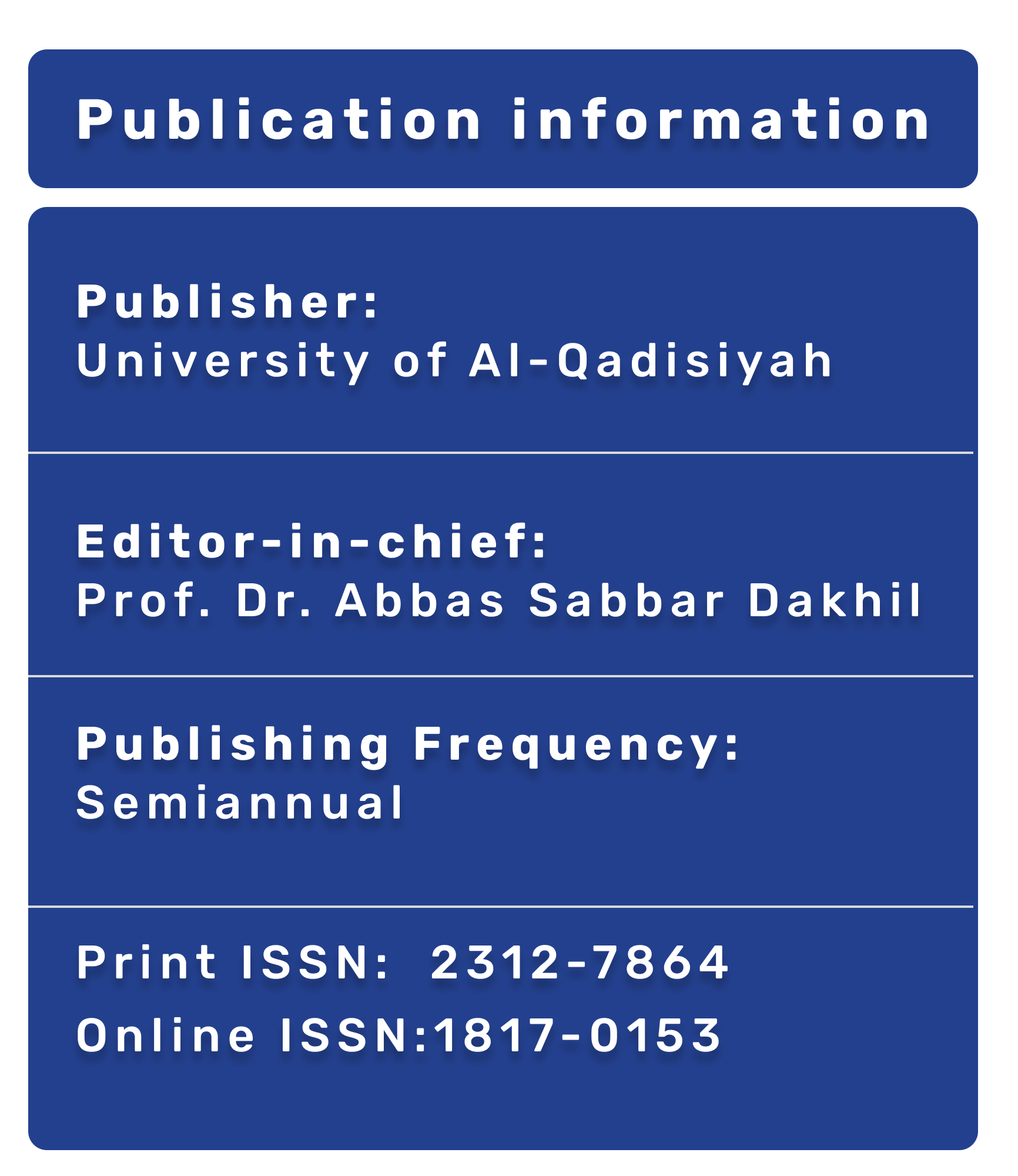Prevalence of acne form rash due to misuse of topical and systemic corticosteroids in age group 15-50years in Al-Diwaniyah teaching hospital /Iraq
DOI:
https://doi.org/10.28922/qmj.2023.19.2.%25pKeywords:
corticosteroids side effects acne form rash over the counterAbstract
Abstract
Background: Synthetic derivatives differ in their metabolic and electrolyte-regulating activities. These agents are employed at physiological doses for replacement therapy when endogenous product is impaired. While corticosteroids are relatively inexpensive & commonly used as treatment for a variety of conditions, long term use is known to be associated with certain toxicities. Increasing use of topical and systemic steroids for treatment many skin problems lead to increase there side effects. Recently, steroid components have been synthesized that aim to have adequate anti-inflammatory effects and minimal adverse effects. The newest topical corticosteroids used for the treatment of different dermatoses and allergic reactions are budesonide, mometasone furoate, prednicarbate, the di-esters 17,21-hydrocortisone aceponate and hydrocortisone-17-butyrate-21-propionate, methylprednisolone aceponate, alclometasone dipropionate, and carbothioates such as fluticasone propionate. These new topical corticosteroids are evaluated in the current review, which compares the risk/benefit ratio of each molecule with established agents. The new molecules, compared with the well known and established corticosteroids, generally have a higher anti-inflammatory effect, good compliance among patients (only a once-daily application is needed), rarely induce cross-sensitivity reactions and have weak atrophogenicity.
References
References
Gonçalves, C., Monteiro, C. and Santos, J.L., 2020. Suspected adverse drug reactions from corticosteroids: analysis of reported notifications to the Portuguese pharmacovigilance system. The Journal of Clinical Pharmacology, 60(10), pp.1367-1375.
DOI:10.1002/jcph.1630
. Liu, D., Ahmet, A., Ward, L., Krishnamoorthy, P., Mandelcorn, E.D., Leigh, R., Brown, J.P., Cohen, A. and Kim, H., 2013. A practical guide to the monitoring and management of the complications of systemic corticosteroid therapy. Allergy, Asthma & Clinical Immunology, 9, pp.1-25.
DOI https://doi.org/10.1186/1710-1492-9-30
Amann, J., Wessels, A.M., Breitenfeldt, F., Huscher, D., Bijlsma, J.W., Jacobs, J.W. and Buttgereit, F., 2017. Quantifying cutaneous adverse effects of systemic glucocorticoids in patients with rheumatoid arthritis: a cross-sectional cohort study. Clin Exp Rheumatol, 35(3), pp.471-6
DOIhttps://doi.org/10.1186/ar4686
WHO model prescribing information: drugs used in skin diseases: annex: classification of topical corticosteroids [Internet]. [cited 13 Jan 2017].from: http://apps.who.int/medicinedocs/en/d/Jh2918e/32.html#Jh2918e.32.1.
Bowie, A.C., Tadrous, M., Egeberg, A., Harvey, J., Lax, S.J., Thyssen, J.P. and Drucker, A.M., 2022. Agreement and correlation between different topical corticosteroid potency classification systems. JAMA dermatology, 158(7), pp.796-800.
DOI:10.1001/jamadermatol.2022.1706
Jampel, J.D., Murray, S.B., Griffiths, S. and Blashill, A.J., 2016. Self-perceived weight and anabolic steroid misuse among US adolescent boys. Journal of Adolescent Health, 58(4), pp.397-402.
https://doi.org/10.1016/j.jadohealth.2015.10.003
Truitt, J.M., Reichenberg, J.S., Sharghi, K.G., Sampson, S.M., Roenigk, R.K. and Magid, M., 2018. Isotretinoin: the ups are just as troubling as the downs. Giornale italiano di dermatologia e venereologia: organo ufficiale, Societa italiana di dermatologia e sifilografia, 153(4), pp.535-539.
DOI: 10.23736/s0392-0488.18.05979-5
Coondoo, A., Phiske, M., Verma, S., & Lahiri, K. (2014). Side-effects of topical steroids: A long overdue revisit. Indian dermatology online journal, 5(4), 416–425. https://doi.org/10.4103/2229-5178.142483
Werth VP, Lazarus GS. Systemic glucocorticoids. In: Fitzpatrick TB, Eisen AZ, Wolff K, Freedberg IM, Austen KF, editors. Dermatology in general medicine. New York: McGraw-Hill, 1993:2859-64.
DOI: 10.18773/austprescr.1998.010
A. Thanou, T. Ali, O. Haq, et al.Utilization of preventive measures for glucocorticoid-induced osteoporosis among veterans with inflammatory bowel diseaseISRN Gastroenterol (2013), p. 862312View in ScopusGoogle Scholar
https://doi.org/10.1155/2013/862312
Kuflik JH, Schwartz RA. Acneiform eruptions. Cutis. 2000;66:97–100.
Momin S, Peterson A, Del Rosso JQ. Drug-induced acneform eruptions: Definitions and causes. Cosmet Dermatol. 2009;22:28–37.
Hengge UR, Ruzicka T, Schwartz RA, Cork MJ. Adverse effects of topical glucocorticosteroids. J Am Acad Dermatol. 2006;54:1–18.
https://doi.org/10.1016/j.jaad.2005.01.010
Mahmood, N. F., & Shipman, A. R. (2016). The age-old problem of acne. International journal of women's dermatology, 3(2), 71–76. https://doi.org/10.1016/j.ijwd.2016.11.002
Dey V. K. (2014). Misuse of topical corticosteroids: A clinical study of adverse effects. Indian dermatology online journal, 5(4), 436–440. https://doi.org/10.4103/2229-5178.142486
Egeberg, A., Schwarz, P., Harsløf, T., Andersen, Y. M. F., Pottegård, A., Hallas, J., & Thyssen, J. P. (2021). Association of Potent and Very Potent Topical Corticosteroids and the Risk of Osteoporosis and Major Osteoporotic Fractures. JAMA dermatology, 157(3), 275–282. https://doi.org/10.1001/jamadermatol.2020.4968
Mahe A et al. Skin diseases associate¬ed with the cosmetic use of bleaching products in women from Dakar, Sene¬egal. British journal of dermatology, 2003, 148(3):493–500.
DOI:10.1046/j.1365-2133.2003.05161.x








